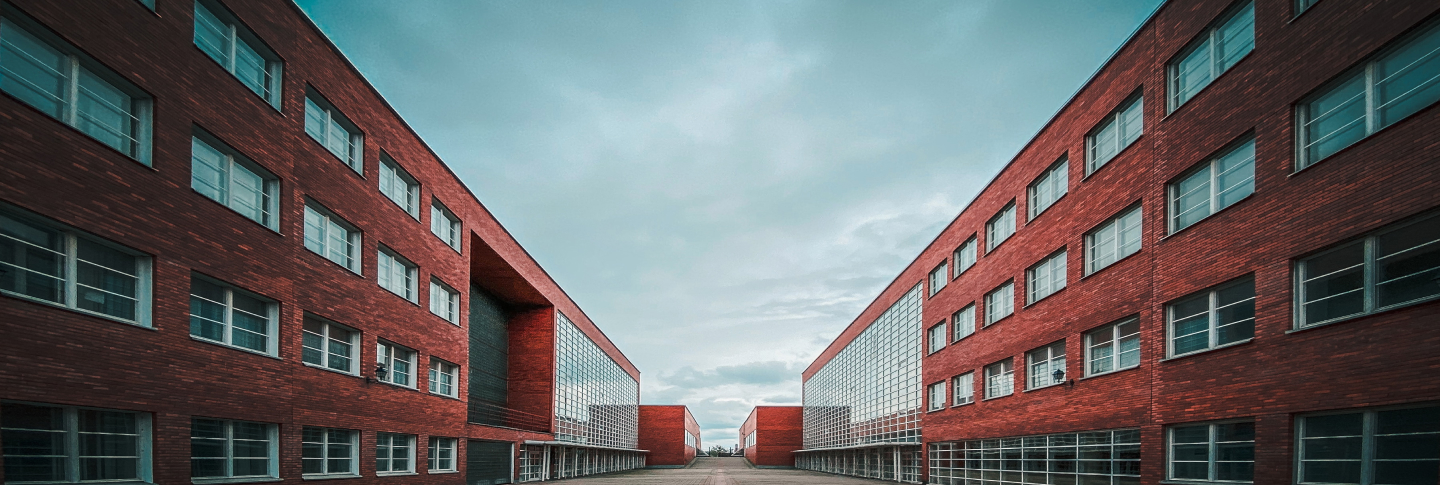
Home >
The Guide to Commercial CCTV Systems
CCTV cameras are a vital component of any commercial security system. They’re often the first line of defence against criminals and help to ensure that your property remains safe.
As experts in the installation, maintenance and monitoring of commercial CCTV systems, we can help you get the most from your system. CCTV’s major roles in property protection are surveillance, deterrence, and evidence collection – but there’s much more to them than that.
In this guide, we’ll help you identify the best system for your business, the importance of CCTV, types of cameras available on the market, CCTV regulations, and more. So read on to find out everything there is to know about commercial CCTV systems.
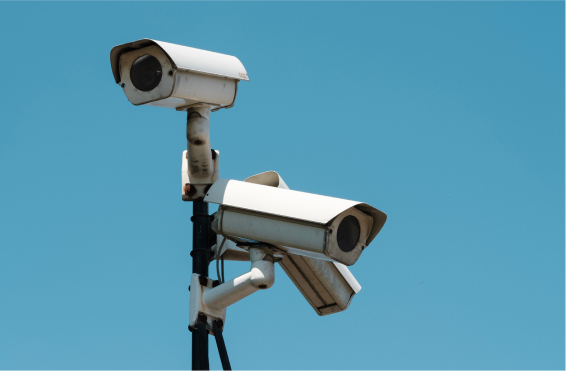
Contents
The Importance of CCTV for Commercial Properties
Before we discuss CCTV in more detail, it’s important to establish the role that it plays in your commercial security system.
Increased Visibility of Your Property
CCTV provides greater awareness of your property. By having cameras in place, you’ll be able to monitor activity and identify any potential threats before they become a problem. This is made possible through CCTV monitoring services, which provide 24/7 coverage of your premises.
Crime Prevention
Studies have shown that the use of video monitoring, such as CCTV, can reduce certain types of crime. The Crime Reduction Toolkit from the College of Policing states that CCTV is linked to a significant reduction in crime. One study demonstrated that locations with CCTV experienced a 13% drop in crime compared to those without it. The presence of CCTV has been found to impact specific types of crime, including a 20% decrease in drug-related crime and a 14% reduction in vehicle and property crime.
Footage for Evidence
If a crime is committed on your premises, CCTV footage can help to identify suspects and be used as evidence in court. The clearer the image, the more useful it will be – so it’s important that you choose an appropriate system with good resolution.
Reduced Insurance Over Time
Although CCTV won’t necessarily reduce your insurance costs instantly, with a proven track record of preventing crime on your premises, you should be able to negotiate lower premiums in the future as you’re less likely to have been burgled.
Peace of Mind
Perhaps one of the most important benefits of CCTV is the peace of mind it provides. Knowing that your property is being monitored 24/7 by a reliable security system can help you rest easy, knowing that any potential threats will be identified and dealt with quickly.
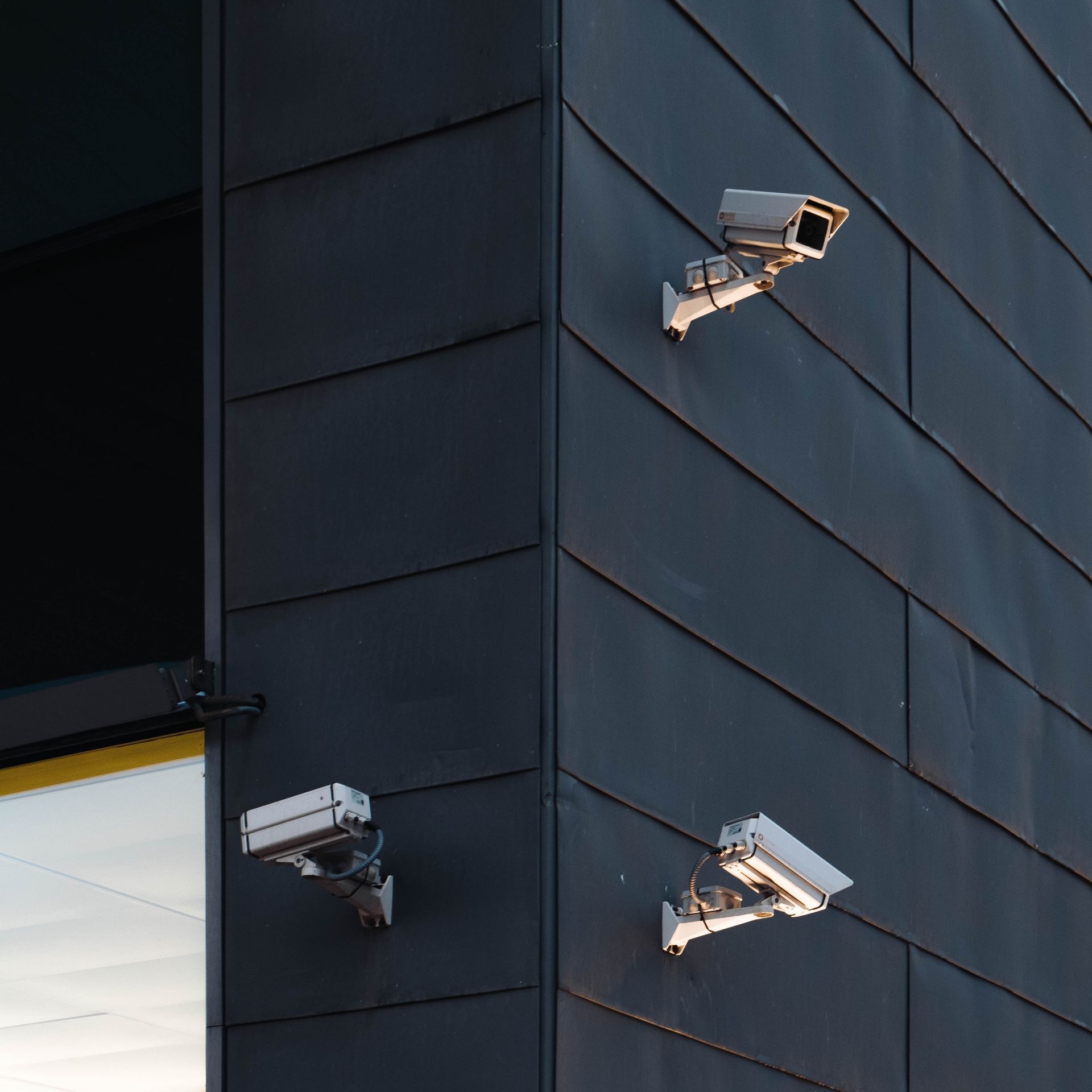
Choosing the Right CCTV System for Your Premise
There are many factors to consider when choosing the right CCTV system for your premises. Let’s take a look at them in more detail:
Location
The location of your cameras is an important factor to consider. You’ll need to decide where you want to place them, keeping any potential blind spots in mind. It’s also important to ensure that they won’t be obstructed by trees, branches or other objects.
Resolution
The resolution of your CCTV cameras will determine how clear the image will be on the monitor, as well as if it can be used as evidence in court. The higher the resolution, the more detailed the image will be – so make sure you opt for a high-resolution camera if possible.
Field of View
The field of view is the area that your camera can capture. It’s important to choose cameras with a wide enough field of view – this will allow you to monitor more of your premises at once.
Discreet or Obvious?
Although we have previously discussed the importance of visibility, you may want to consider a discreet CCTV system if you don’t want it to be immediately obvious that your property is being monitored.
Technology
Finally, you should also consider the type of technology you want in your system – there are many different kinds available on the market, from infrared capabilities and night vision to motion detection systems and facial recognition software. Think about what features will best suit your needs and budget before making a decision.
Types of CCTV Camera Available
Choosing the right CCTV camera can be confusing due to the various types, styles, and configurations available, each with different features and options. So, here we’ve laid out some of the most popular types of CCTV camera:
Dome Camera
Dome CCTV cameras are a popular type of camera suitable for both indoor and outdoor use. They’re named after the dome-shaped housing in which they sit. This housing also makes it difficult to determine the camera’s direction, making it effective for deterring crime. Additionally, speed dome cameras are available, which provide operators with quick pan, tilt, zoom, and spin capabilities, enabling them to focus on specific events with greater accuracy.
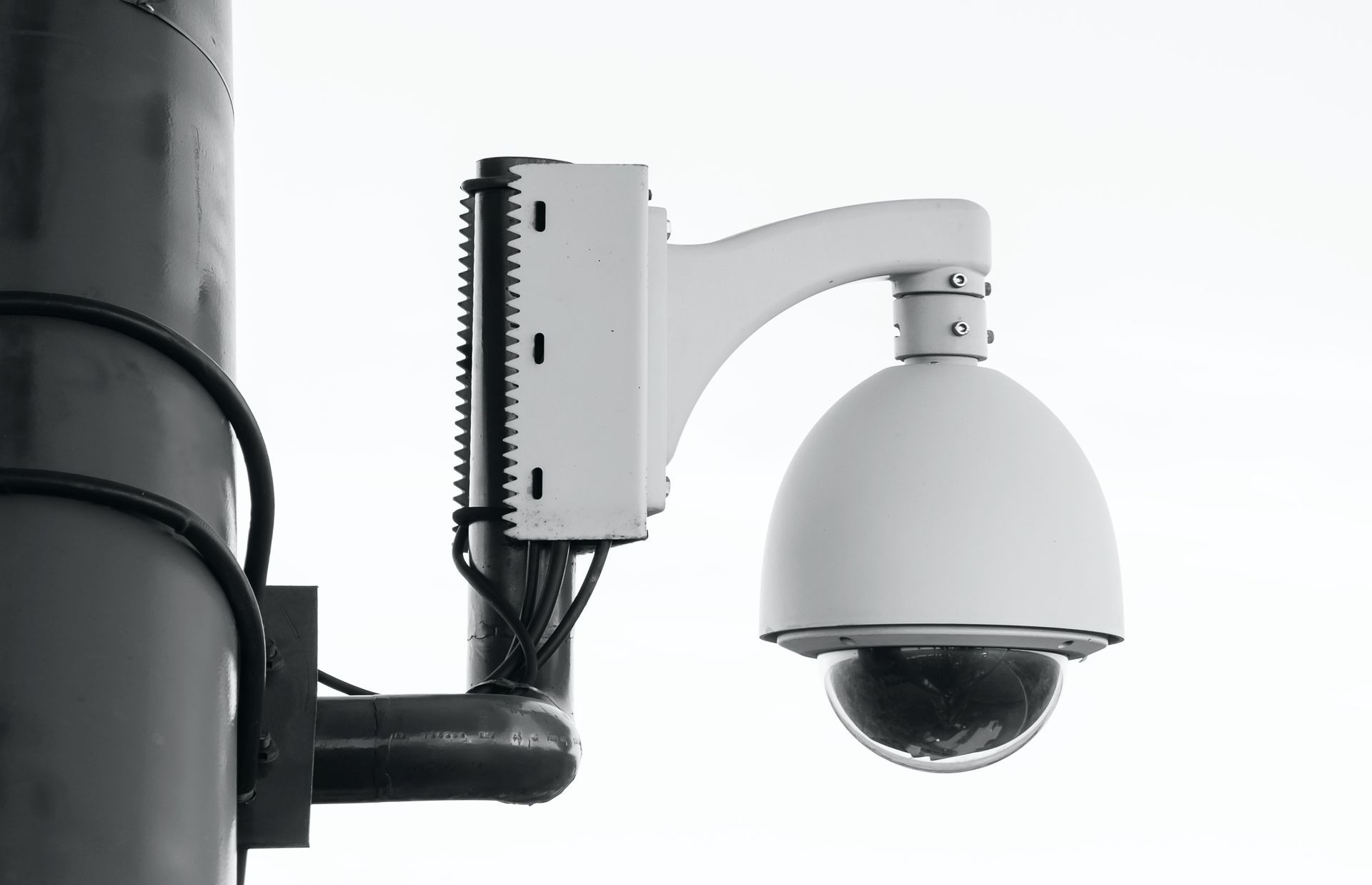
Day/Night Camera
Day/night CCTV cameras are beneficial as they can work effectively in both well-lit and poorly-lit or night time environments. Since they can capture clear video images in various light conditions and in the absence of light, they do not require infrared illuminators. These cameras are best suited for outdoor use and can function despite glare, direct sunlight, reflections, and bright back-light.
Bullet Camera
CCTV cameras that have a long and cylindrical shape are called Bullet cameras. They’re commonly used for long-distance viewing or in stationary positions as they do not have the pan/tilt/zoom feature. You can mount them on walls or ceilings, and they are suitable for use both indoors and outdoors. In harsh environments, you can use protective casings to make the camera waterproof or shield it from dust and dirt.
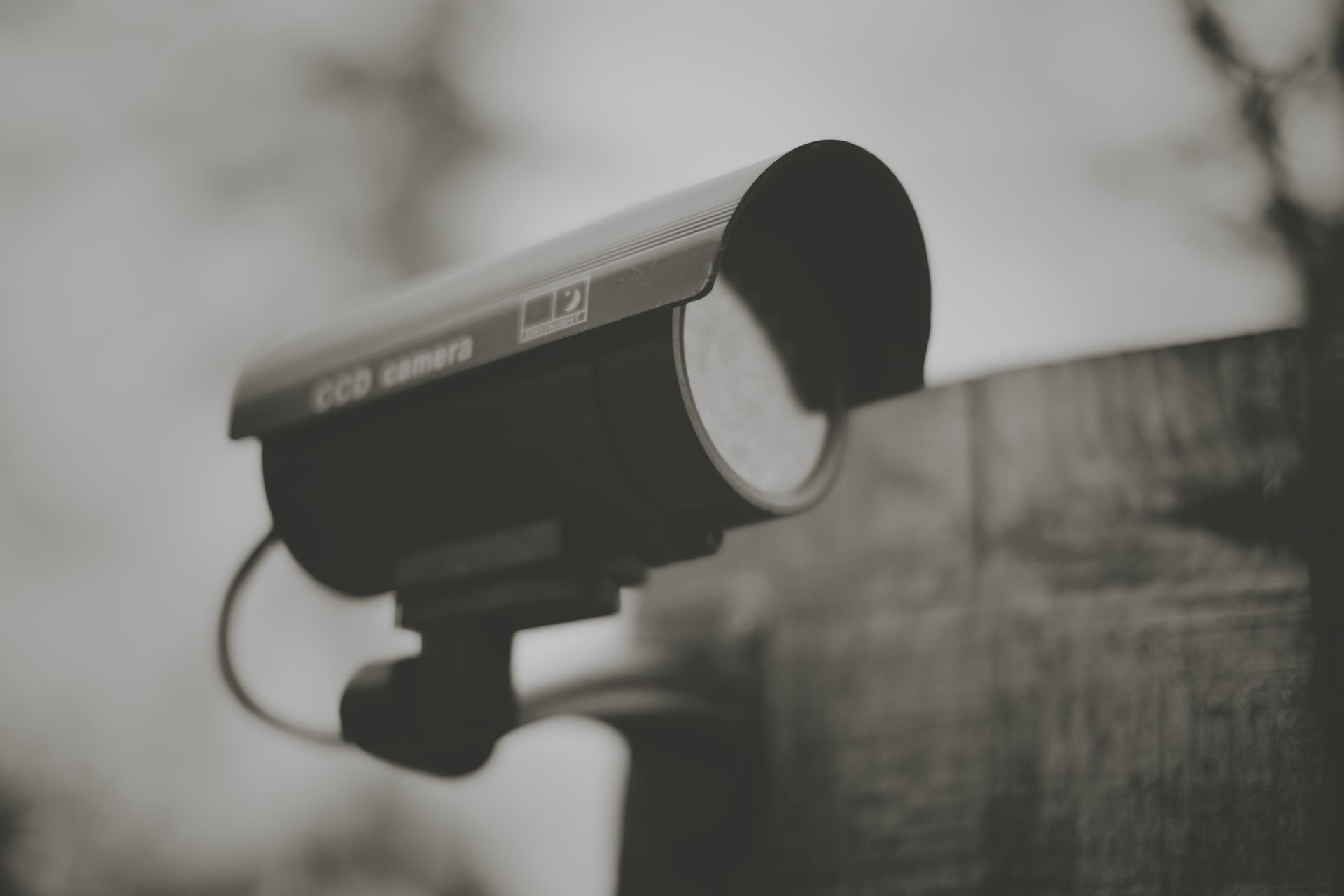
Network/IP CCTV Camera
These cameras can transmit images over the internet either through hardwired or wireless connections. They usually compress the bandwidth to avoid overwhelming the web and the footage is stored on network video recorders (NVRs) or accessed through secure software. IP cameras are easier to install because they don’t need a separate cable to send images over long distances.
Wireless CCTV Camera
Wireless cameras are cameras that do not need any wires. They are easier to install and can be placed in more flexible locations. They’re suitable for most settings, but are particularly useful in areas where you don’t want to see the wires.
Pan Tilt & Zoom Camera
PTZ cameras have the ability to pan left or right, tilt up or down, and zoom in or out. They’re typically used in situations where a security guard is present to operate and monitor on-site security systems.
As you can see, there are CCTV cameras available for a variety of purposes. Before you decide, it’s always important to consider your security needs and the type of environment you will be using the camera in. Our specialists at Britannia Fire & Security are always on hand to advise on the best CCTV system and camera for you – so get in touch if you’re looking for more information.
Commercial CCTV Regulations
Now that we’ve covered the importance of having a CCTV system in your commercial property, and some of the different cameras available – we need to discuss the regulations that you need to be aware of before starting your surveillance project.
The Information Commissioner’s Office (ICO)
The ICO is a UK organisation that ensures information rights are respected. If your business uses video surveillance systems that capture personal data, the ICO has clear instructions on how to comply with the GDPR and Data Protection Act 2018.
The ICO provides guidance for businesses using CCTV systems that capture individuals through ANPR, Facial Recognition Technology, and Machine Learning. The guidance refers to the Surveillance Camera Code of Practise, which encourages compliance with the code.
Surveillance Camera Code of Practice
The 12 principles outlined in the surveillance camera code of practice must be followed by CCTV system operators to adhere to standards and good practices when operating surveillance cameras:
- The use of CCTV should always have a clear and valid reason that serves a recognised need.
- Privacy considerations must be taken into account by CCTV operators, taking into consideration the impact on individuals.
- Transparency is crucial, and there should be clear information available about the use of CCTV, including contact details for accessing information and submitting complaints.
- An individual should be designated as responsible and accountable for all CCTV operations.
- Businesses must establish and enforce strict policies and procedures before implementing a surveillance system, ensuring that all relevant parties are aware of them.
- CCTV footage should only be retained for as long as necessary, and information should be deleted when it is no longer needed.
- Access to stored footage and information must be limited and controlled.
- Operators of CCTV systems should adhere to operational, technical, and competency standards that are relevant to the system and its purpose.
- Strict security measures should be implemented to protect CCTV footage against unauthorised access.
- Effective review and audit procedures should be in place to meet legal requirements, policies, and standards.
- CCTV surveillance should be utilised primarily to enhance public safety and aid law enforcement by capturing images and information that are of evidential value.
- Information used for surveillance systems that involve matching against a database should be accurate and regularly updated.
CCTV System Services
To ensure operational efficiency, CCTV systems should be installed and maintained by professionals. At Britannia Fire & Security – we have a team of experienced security experts who specialise in the installation and maintenance of CCTV systems for commercial properties. All of our technicians are qualified to carry out work on all types and sizes of system, so you can rest assured that your business is in safe hands. We also provide remote monitoring services for added peace-of-mind.
Our specialists have extensive experience providing tailored solutions for businesses across the UK, from small offices to larger factories and warehouses. So if you’re looking for reliable CCTV services, get in touch with us today.
Commercial CCTV Considerations
If you still have some questions after reading our guide – we’ve compiled a brief list of some of our most frequently asked questions.
Where Can I Point My Commercial CCTV Cameras?
Any visible CCTV cameras must be pointed away from residential areas and public places. It is also important to ensure that CCTV cameras are not installed in areas where they may capture sensitive or confidential information, such as changing rooms or other private spaces.
How Long Can I Keep CCTV Footage for?
The recommended retention period by authorities is 31 days, which is usually sufficient for reviewing footage and identifying relevant captures for investigations. However, small business owners may find this recommendation impractical.
What Are the Benefits of Remote Monitoring?
Remote monitoring offers enhanced security features such as real-time alerts, remote access to CCTV feeds, and automated incident response. This allows companies to respond quickly to incidents and review footage remotely – even when offsite.
We hope this guide has been helpful in providing you with a better understanding of commercial CCTV systems and the surveillance camera code of practice. If you have any further questions or would like to discuss setting up a system for your business, please don’t hesitate to contact us today. Our team of security experts are always on hand to provide advice and support. We look forward to hearing from you.
Sources Used to Construct this Guide
https://www.college.police.uk/research/crime-reduction-toolkit/cctv?InterventionID=1
https://www.gov.uk/government/consultations/surveillance-camera-code-of-practice
https://www.businesswatchgroup.co.uk/security-services/cctv-systems/

